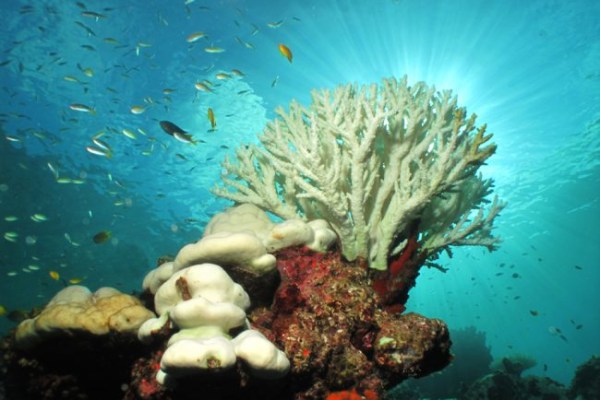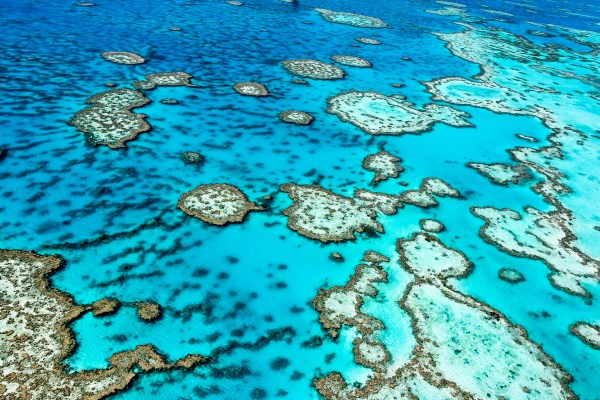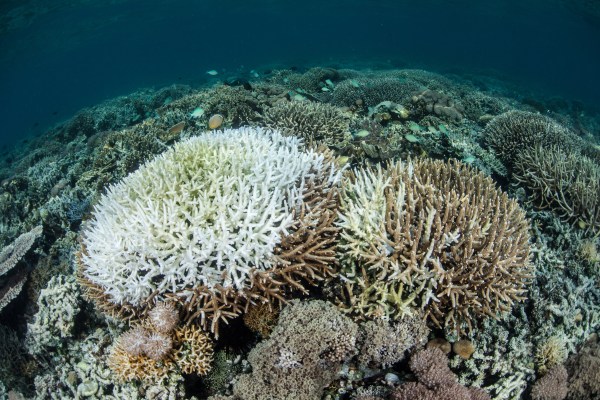
The Great Barrier Reef is, in a word, dying. Rising ocean temperatures are causing widespread coral bleaching, where the corals expel the algae that provide their color because they can’t provide the algae with nutrients. While this isn’t necessarily a death sentence for the coral, the more severely it’s bleached, and the longer it stays that way, the more likely it is to die. It’s sad, but it’s also dangerous.
Dying reefs might lead to dying fish, and worse, dying humans.
The Rainforests Of The Ocean
Despite occupying a small amount of the sea, coral reefs are home to nearly a quarter of all known sea life. If a reef is bleaching, that’s a major warning sign that far more than just that organism might be at risk. And that’s not just bad news for the environment, it might mean people will starve.
We pull roughly 15 tons per square kilometer of seafood out of coral reefs every year; Southeast Asia alone collects $2.4 billion worth of seafood off its reefs. In the Pacific Rim, especially, reefs are a crucial source of food and if they’re dying, billions will need to turn to some sort of alternative food source.
But that food source might not even exist: Much of the Third World lacks the infrastructure to replace fish with another protein source, and environmental damage on land might put up more barriers to raising chickens and pigs, to say nothing of how mass farming damages the ecosystem on land. It might ultimately cause more bleaching with toxic runoff into the ocean, dumping, and other problems. In other words, if the reefs die, the humans that rely on them might soon go with them.

No More Tourists
Beyond their biodiversity and food, the tourism value of coral reefs is valued in the billions. Every year, thousands of tourists travel to remote places just to snorkel or SCUBA and witness the reef in all its glory. But if the reefs bleach, what reason is there to go?
Australia is instructive. The Great Barrier Reef was directly tied to nearly 70,000 jobs and more than $12 billion in revenue just in 2013. That was roughly a quarter of its annual GDP. If that evaporates, unemployment would head into the double digits even as its tax base shrunk dramatically. And this is a First World country with other industries and resources: Developing nations that rely on tourism might not be able to cushion that loss.

Saving The Reefs
Can the reefs recover? It’s possible. Scientists have observed corals forming new symbiotic relationships with algae that can withstand warmer ocean temperatures, and plans are afoot to create artificial reefs and salvage the biodiversity.
That said, there are risks. Changing the algae in the reef, especially if we introduce it without observing what it might do elsewhere, could trigger an environmental domino effect, driving away or killing species that rely on the reef due to some unanticipated change. (That’s the thing about tinkering with nature, as Ian Malcolm would tell us.) Ecosystems are delicate, and easily knocked out of balance by human intervention. Changing the reefs might ultimately be just as dangerous as killing them.
But no matter what, we can’t just let the coral die; there’s too much at stake for humans, no matter how far we may be from the ocean.
Want to learn more?
https://www.youtube.com/watch?v=Wo-bHt1bOsw






